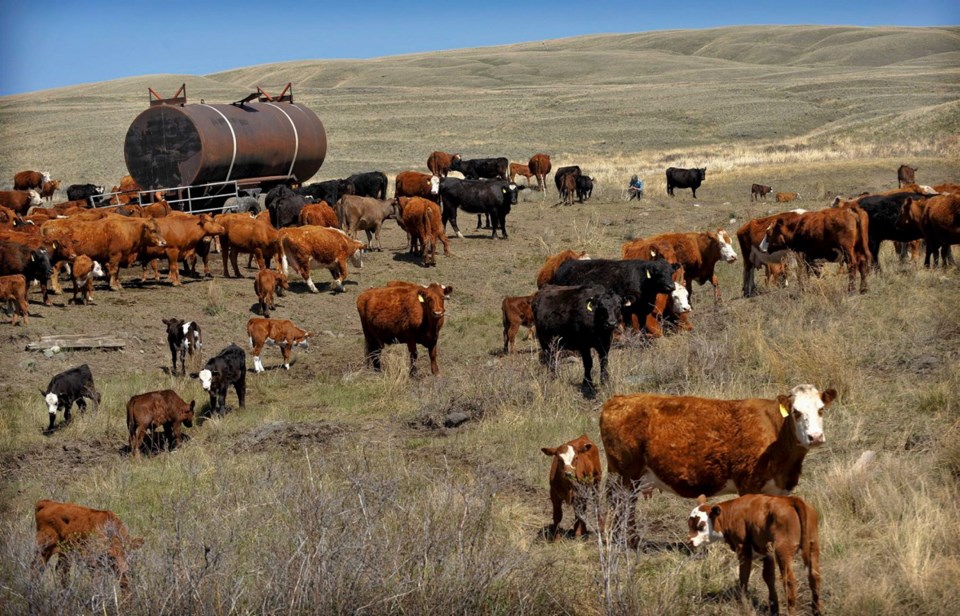Last week, I described the measurement of the ecological footprint of this region. Here, I discuss the findings in more detail, and the implications for our way of life and public policy.
What must we do if we are to reduce our footprint by about two-thirds, to get from two to three planets’ worth of impact to our fair share, which is one planet’s worth? And what would that mean for our health and well-being?
The largest single benefit in terms of reducing our ecological footprint, Jennie Moore and Cora Hallsworth suggest, will come from eliminating carbon emissions from the fossil fuels we use for heating, cooling and electrical supply in our buildings; so we must oppose the mining and export or use of coal, oil and gas, and strongly support clean, green, renewable energy.
But one of their most surprising findings is that almost half of our ecological footprint is attributable to our food, and mainly our high-meat, high-dairy diet, which accounts for almost three-quarters of our food ecological footprint. This is because it takes a lot of land, energy and other resource inputs to produce meat, especially beef, and — to a lesser extent — dairy.
Not surprisingly then, one of their key suggestions is that we reduce our meat consumption by 25 per cent, replacing it with chicken (or non-meat alternatives); they also suggest reducing dairy-food consumption by 25 per cent.
This would be not only environmentally beneficial, but good for health. Evidence suggests a low-meat diet has a number of health benefits, including reduced rates of cardiovascular disease, diabetes and cancer.
I like a slogan I saw recently — “Make meat a side dish”; this is completely in line with Michael Pollan’s simple guide to food policy and consumption: “Eat food, not too much, mostly plants.”
In addition to changing what we eat, they suggest we reduce overall food purchasing by 25 per cent. Eating less is perhaps the most important way in which we can reduce obesity rates, and purchasing less food overall will also reduce food waste.
But this means demanding that food producers, stores and restaurants of all sorts reduce portion size, as well as providing more low-meat or vegetarian alternatives.
Our transportation system is another important contributor to our ecological footprint, accounting for about a quarter of it, with most of that due to private vehicles. Moore and Hallsworth suggest that half of all private vehicles need to be electric-powered, although of course, that electricity needs to come from clean, renewable energy systems, not from fossil-fuelled plants.
However, while switching to electric vehicles will reduce both carbon emissions and air pollution, it will not solve other problems such as congestion, injuries or a sedentary lifestyle. For that, we need to change the way we move around.
In her assessment of the ecological footprint of Vancouver, Moore also suggested a marked increase in active transportation, with as much as 86 per cent of all trips made by walking, biking, rolling or using public transit; that would also apply here.
The health benefits of these transportation policies include reduced air pollution, reduced injuries (public transit is far safer), reduced greenhouse gases (and thus reduced health impacts from climate change), increased physical activity and reduced commuter stress.
We now have an exciting opportunity to look at some of these ideas in more depth right here in the capital region. Bioregional is a U.K.-based nonprofit organization that encourages and supports One Planet planning. With funding from a Danish foundation, they are starting a one-year project in four cities around the world, one of which is Saanich; the others are Elsinore, Denmark; Durban, South Africa; and Oxfordshire, U.K.
Here they are partnering with the District of Saanich and a Vancouver-based group, One Earth. The project involves recruiting and training a team of 10 to 15 “One Planet Integrators” who will then support up to 24 business, school, and community stakeholders to make their own One Planet Action Plans over the next year.
To learn more, visit oneplanetsaanich.org or come hear Pooran Desai, Bioregional’s founder, speak at a special session at the University of Victoria, co-hosted by Conversations for a One Planet Region, Wednesday June 20, at 7 p.m. in the HSD Lecture Theatre (Room A240).
Dr. Trevor Hancock is a professor and senior scholar at the University of Victoria’s school of public health and social policy.



